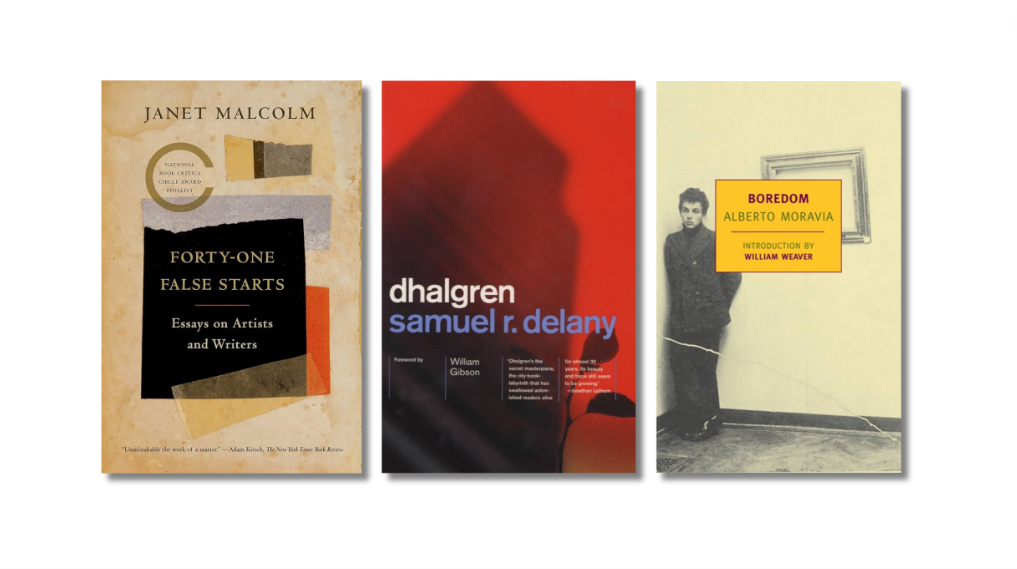 I’ve been squatting in the firebombed (was it?) city of Bellona with Samuel Delany in spare pockets of time for what feels like years. (It’s been weeks.) (Not even through the first quarter.) Structural integrity has been compromised. Electricity is spotty. We read the local paper by candlelight for the hot goss. At least the gas works. Dhalgren is all the right kinds of weird: the prose bends funny; bodies body; everyone’s sneaking off to pick their nose—and eat it. Much is opaque. The protagonist doesn’t even know his name.
I’ve been squatting in the firebombed (was it?) city of Bellona with Samuel Delany in spare pockets of time for what feels like years. (It’s been weeks.) (Not even through the first quarter.) Structural integrity has been compromised. Electricity is spotty. We read the local paper by candlelight for the hot goss. At least the gas works. Dhalgren is all the right kinds of weird: the prose bends funny; bodies body; everyone’s sneaking off to pick their nose—and eat it. Much is opaque. The protagonist doesn’t even know his name.
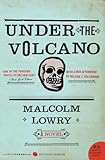 Was supposed to read Dhalgren a decade ago in grad school with the Big Fat Postwar American Novel Reading Group—BFPWANRG—but I was in Mexico that term reading Under the Volcano in Cuernavaca with mezcal on the porch of the home of a psychoanalyst where I was staying, hanging over a jungled ravine. Now two of my grad students are writing on it, Dhalgren, so, finally, to Bellona—to wound the autumnal city—I go.
Was supposed to read Dhalgren a decade ago in grad school with the Big Fat Postwar American Novel Reading Group—BFPWANRG—but I was in Mexico that term reading Under the Volcano in Cuernavaca with mezcal on the porch of the home of a psychoanalyst where I was staying, hanging over a jungled ravine. Now two of my grad students are writing on it, Dhalgren, so, finally, to Bellona—to wound the autumnal city—I go.
Biography of X, Essayism, Family Lexicon, Simple Passion.
 “Hilary’s name, Hilary Plum.” Hilary Plum had problems with the book I published this year. “I always thought, if someone was falling in love with her, a fruit surname like that would irresist them to her forever.” Hilary Plum is a fictional character in Revenge of the Scapegoat. If only she were fictional in my life! (Just kidding, I love micropresses.) In Caren Beilin’s novel, Iris has written an unfinished play, “Billy the Id.” She’s an adjunct. She’s named her feet Bouvard and Pécuchet. For many pages she lies in a field with a cow gently stepping on her chest, above her heart; the cows used to trap escaped Jews for Nazis to shoot. It’s very sad: I laughed my ass off and it went rolling down the street.
“Hilary’s name, Hilary Plum.” Hilary Plum had problems with the book I published this year. “I always thought, if someone was falling in love with her, a fruit surname like that would irresist them to her forever.” Hilary Plum is a fictional character in Revenge of the Scapegoat. If only she were fictional in my life! (Just kidding, I love micropresses.) In Caren Beilin’s novel, Iris has written an unfinished play, “Billy the Id.” She’s an adjunct. She’s named her feet Bouvard and Pécuchet. For many pages she lies in a field with a cow gently stepping on her chest, above her heart; the cows used to trap escaped Jews for Nazis to shoot. It’s very sad: I laughed my ass off and it went rolling down the street.
The Bern Book, The Displacements, The Event Factory, The White Dress.
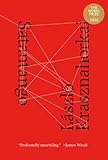 I read Satantango and wondered, I’m mortified to admit, why I weren’t reading Kafka, or maybe Bernhard. I tried to read Book of Numbers—adoring The Netanyahus—but found the style hostile to wakefulness. I skimmed three of Danielle Steel’s latest novels…almost as quickly as she wrote them, yukyukyuk….
I read Satantango and wondered, I’m mortified to admit, why I weren’t reading Kafka, or maybe Bernhard. I tried to read Book of Numbers—adoring The Netanyahus—but found the style hostile to wakefulness. I skimmed three of Danielle Steel’s latest novels…almost as quickly as she wrote them, yukyukyuk….
A Different Drummer, When We Cease to Understand the World, On Not Knowing, Beautiful World, Where Are You?

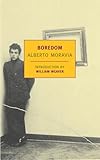 I read the postmodern masterpiece, Northanger Abbey, with its delicious depictions of bad dates. I read Darryl and swooned over its tender cuck. I read Boredom, that riveting account of an affect that, hilariously, leads Dino reluctantly to invite a beautiful young woman to his studio and, to his distress, end up fucking her. Oh god, oh, how horrible, I’m fucking this archetype of the object to patriarchal desire! Hideous! It’s very good. In the spring I taught Very Contemporary Literature and we read Pure Colour, Second Place, Hurricane Season, and The Other Name, while grappling with Timothy Bewes’s Free Indirect. Drunk painters! Impossible utterances!
I read the postmodern masterpiece, Northanger Abbey, with its delicious depictions of bad dates. I read Darryl and swooned over its tender cuck. I read Boredom, that riveting account of an affect that, hilariously, leads Dino reluctantly to invite a beautiful young woman to his studio and, to his distress, end up fucking her. Oh god, oh, how horrible, I’m fucking this archetype of the object to patriarchal desire! Hideous! It’s very good. In the spring I taught Very Contemporary Literature and we read Pure Colour, Second Place, Hurricane Season, and The Other Name, while grappling with Timothy Bewes’s Free Indirect. Drunk painters! Impossible utterances!
A Girl’s Story, The Girl on the Train, The Critic’s Daughter, The Guest Lecture.
 At night, in bed, after leaving my crossword puzzles and Twitter friends in the living room, I read aloud with my wife a pair of old favorites, a favorite pair, “Professor Sea Gull” and Joe Gould’s Secret. Do you know about Joseph Mitchell? Do people, still? How he came up from the Carolina swamp, tobacco country, to become Harold Ross’s best writer at The New Yorker with his profiles of the city’s daily rhythms, its oddballs? How he wrote Joe Gould’s Secret and, in 1964, stopped—kept coming into the office for the next thirty years but never published again?
At night, in bed, after leaving my crossword puzzles and Twitter friends in the living room, I read aloud with my wife a pair of old favorites, a favorite pair, “Professor Sea Gull” and Joe Gould’s Secret. Do you know about Joseph Mitchell? Do people, still? How he came up from the Carolina swamp, tobacco country, to become Harold Ross’s best writer at The New Yorker with his profiles of the city’s daily rhythms, its oddballs? How he wrote Joe Gould’s Secret and, in 1964, stopped—kept coming into the office for the next thirty years but never published again?
“Professor Sea Gull” is a 1942 profile of Joe Gould, a Greenwich Village bum who feeds off free ketchup in the diners and claims to be writing a vast oral history. He kept nagging at Mitchell, whose last work is a book-length revisitation, a reckoning, really, with the compromises, aesthetic and ethical, of the profile as a genre and the cost, for both men, of the early piece, which, after new revelations, becomes a comic caricature, a goof, and merciless. When Mitchell became a character in Gould’s life story, in Joe Gould’s Secret, that life became full in its hollowness: horrible, and tragic.
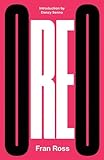
 Fake Accounts, Forty-One False Starts, The Nature Book, The New Earth, Vintage Contemporaries, The Literary Mafia, The Best of Everything, Oreo, No One Is Talking About This, Novels by Aliens, The Dangerous Art of Text Mining, Making the Carry, Writing Backwards, We the Parasites….
Fake Accounts, Forty-One False Starts, The Nature Book, The New Earth, Vintage Contemporaries, The Literary Mafia, The Best of Everything, Oreo, No One Is Talking About This, Novels by Aliens, The Dangerous Art of Text Mining, Making the Carry, Writing Backwards, We the Parasites….
More from A Year in Reading 2023
A Year in Reading Archives: 2022, 2021, 2020, 2019, 2018, 2017, 2016, 2015, 2014, 2013, 2012, 2011, 2010, 2009, 2008, 2007, 2006, 2005
